Yihan Dong designs at-home HPV test to be "as easy to use as toilet paper"
Designer Yihan Dong has developed Viwipe, a prototype HPV home-testing kit that uses menstrual blood collected in the privacy of the user's own home.
The Viwipe all-in-one kit, which Dong developed with bioengineering researcher and doctor Kenny Malpartida Cardenas, would let users collect and send off menstrual blood samples for lab testing as an alternative to conventional cervical screenings.
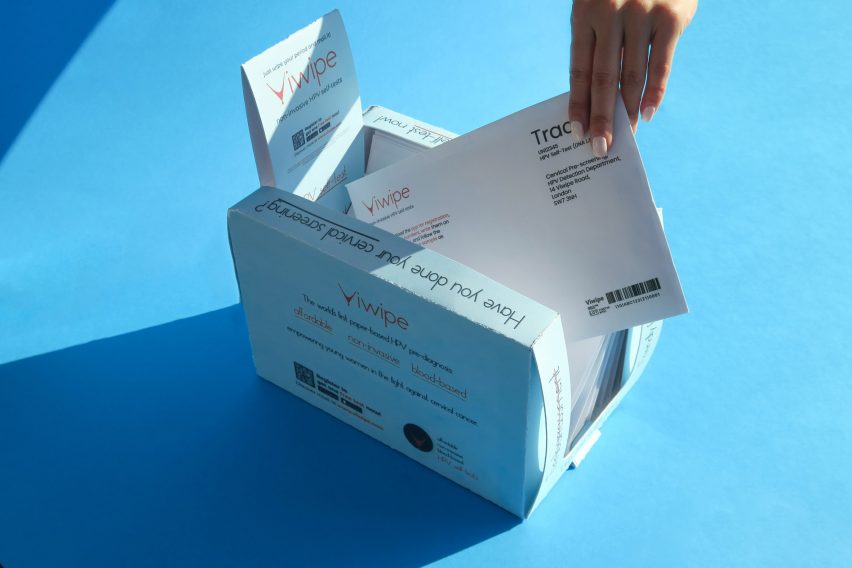
Human papillomavirus (HPV) is a virus that is transmitted during sexual contact and has no obvious symptoms once contracted, but can lead to cervical cancer if it goes undetected and untreated.
Despite this risk, in-person screenings are often seen to be invasive and daunting and are subsequently avoided out of fear or embarrassment.
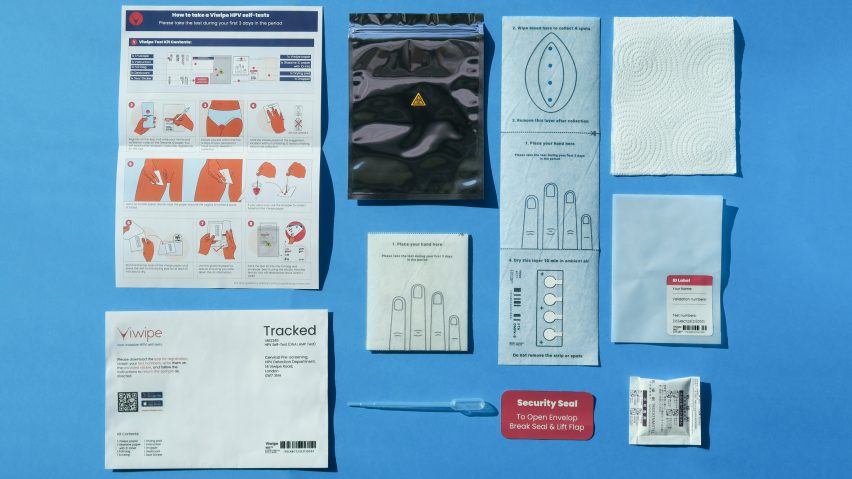
Viwipe enables people to instead collect samples for testing themselves, which Dong hopes could lead to more frequent testing and eventually lower the rate of serious illness.
Viwipe kits contain the paper-based test itself, a pipette, an instructional sheet, secure packaging and a return envelope. Clear instructions are also printed onto the surface of the paper test.
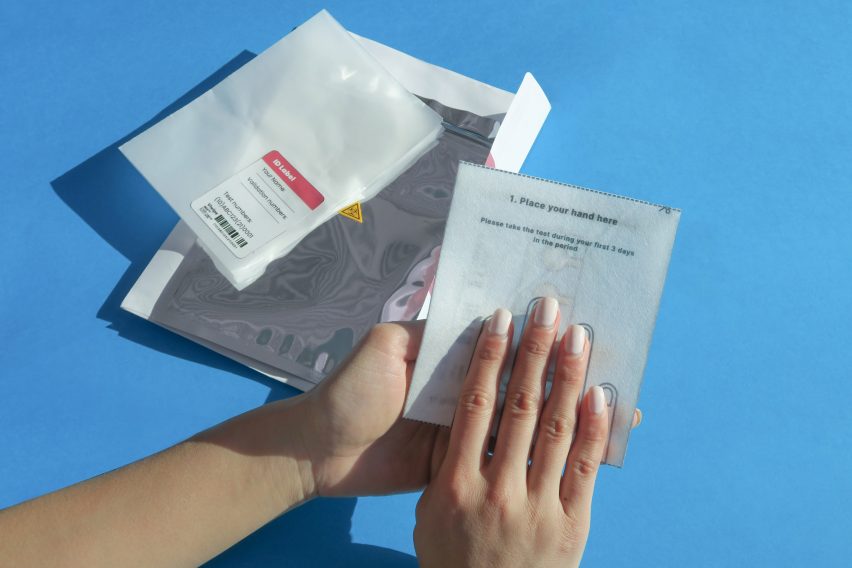
"The design balances medical rigour and friendliness," Dong told Dezeen. "The monochrome colours for the kits and products keeps manufacturing costs down – the test kit costs under five pounds to make."
"Black ink was chosen for the test paper – the more colourful inks we have, the harder it is to do comparison experiments, which may cause incorrect results."
The test consists of three sheets of thin paper. The first sheet has a waterproof backing layer made from body-safe materials, as well as four three-millimetre-sized cut-out holes.
The middle layer contains filter paper that retains menstrual blood, and the bottom layer is printed with a hand placement guide. Users hold this part of the kit and use it to wipe off their menstrual blood.
Once samples are collected, the kit is contained within reinforced triple-layer packaging and could then be sent via post to the laboratory.
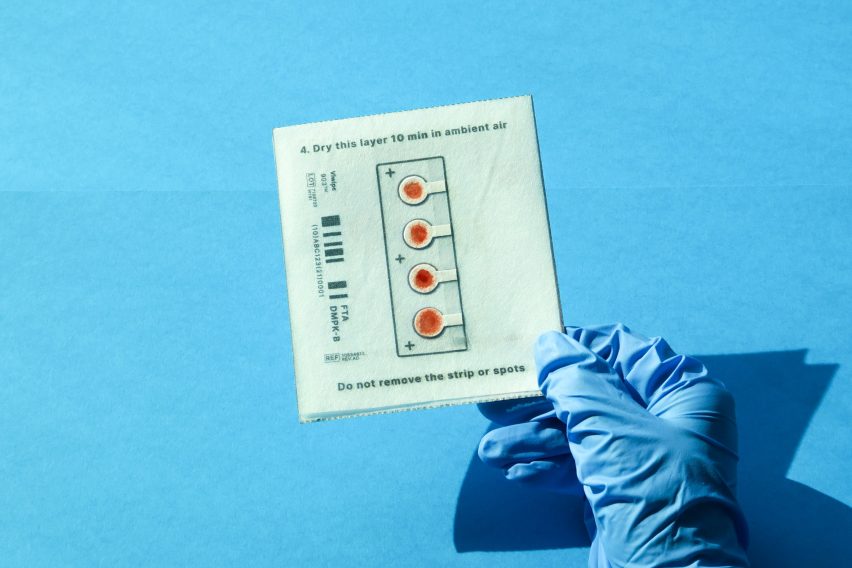
Lab staff would then extract the samples and test for high-risk HPV types linked to cervical cancer. Once processed, users could expect to receive their results in under 30 minutes, according to Dong.
"Viwipe revolutionises cervical screening by integrating menstrual blood with paper-based technology, offering novel, low-cost, and accurate HPV test kits," said Dong.
"[The kit's] human-centred approach transfers paper-based blood collection (Dried Blood Spot, DBS) into the form of toilet paper to reduce costs and simplify the user experience."
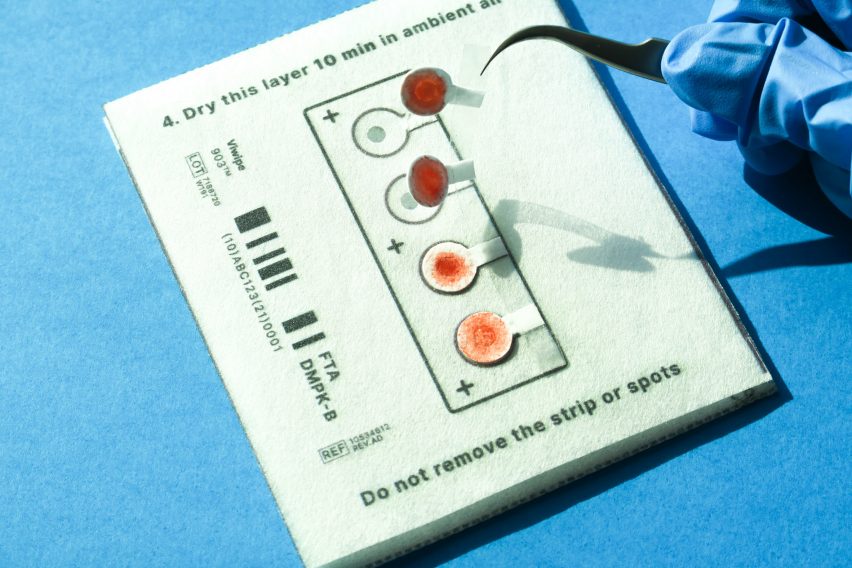
Menstrual blood is an underutilised bodily fluid for indicating the presence of HPV, according to the designer, who designed the testing kit while studying for her master's degree in Innovation Design Engineering at the Royal College of Art and Imperial College London.
"While urine and faeces are used for biomarker analysis, menstrual blood remains unexplored," explained Dong.
"[Viwipe] aims to explore the medical potential of menstrual blood and transform paper technology into a user-friendly format – as easy to use as toilet paper."
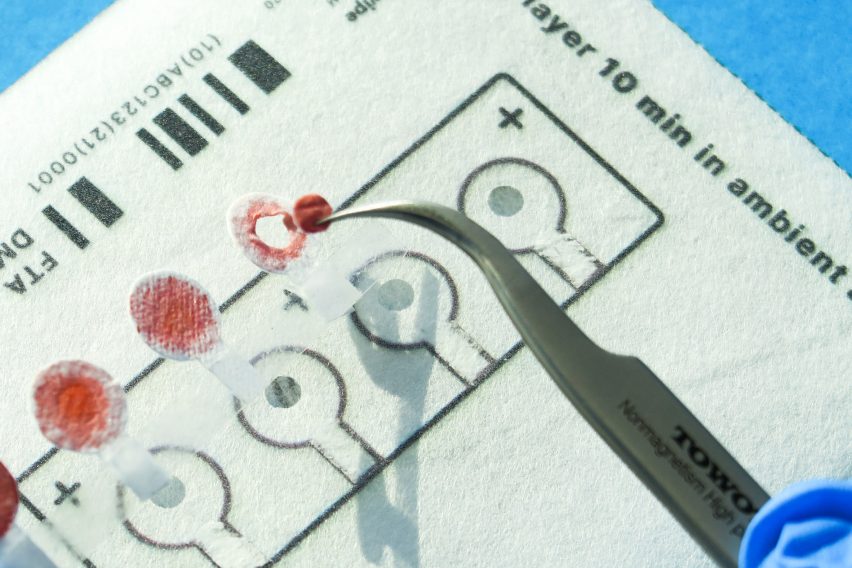
"Viwipe prioritises biological safety and sees the potential for self-testing to detect other diseases," Dong said. "Community engagement design breaks social taboos and ensures accessibility for all."
Initial lab-based trials during the development process were well received by participants, and Dong hopes that the tests can be rolled out for use by the wider public in the near future.
"Our goal is to eliminate cervical cancer, save lives, and improve screening accessibility," Dong concluded.
Other medical testing kits published on Dezeen include a test that uses urine to detect breast cancer by Spanish engineer Judit Giró Benet and a biodegradable and recyclable Covid-19 test by Design agency Morrama.
The photography is courtesy of Yihan Dong.